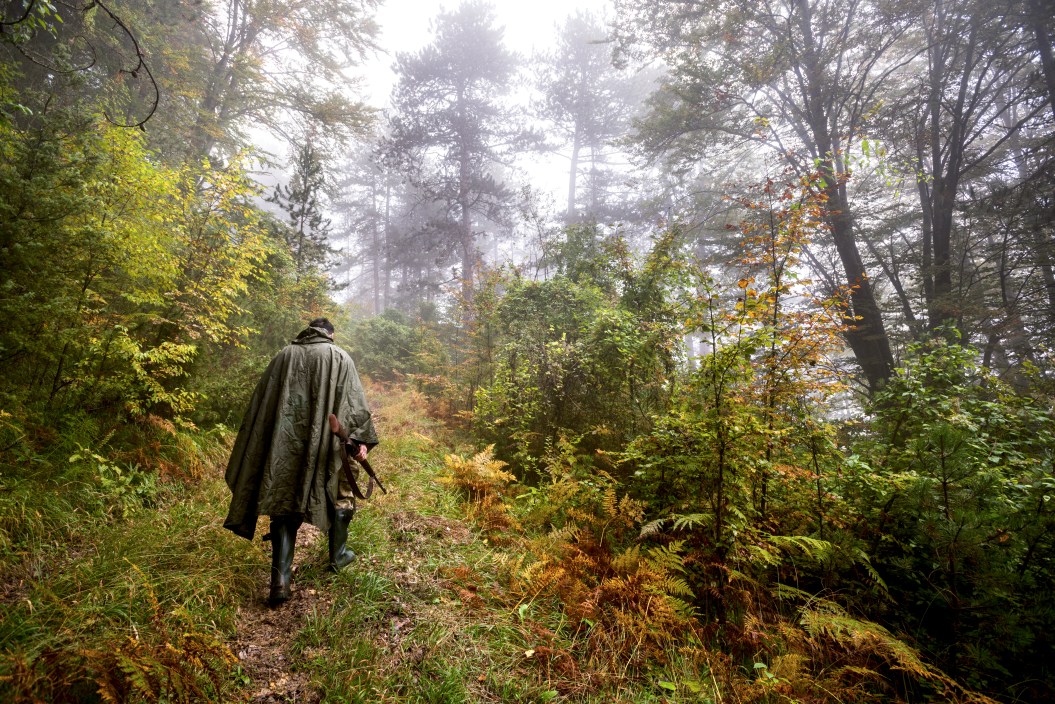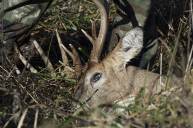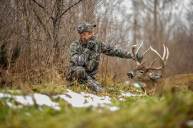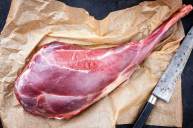If you hate grocery shopping, there may be another alternative. Australian hunters are taking matters into their own hands as they hunt for their own food in the wild. Returning to the "old days," these hunters are turning away from processed and packaged meats and getting their nutrition directly from the source.
What It Takes To Be An Australian Hunter

Screenshot from Cass Flemming's Instagram
While Cass Fleming may work a desk job in IT, that does not stop her from having a variety of exciting passions. Whether bargain hunting or scuba diving, this woman is always on the move. Her newest endeavor is hunting sambar deer in Victoria's High Country. Why does she hunt the sambar deer? Despite being Victoria's largest and most common type of deer, Cass likes its challenge. She told ABC, "Sambar deer are regarded as being difficult to hunt, so there's a sense of having to actually work for it."
Besides just making a clean shot, knowing your surroundings is another difficult element of hunting for your own food. There are no paths where Cass hunts. She must find her way around as well as back to her vehicle. Then, she needs to have the skill to make an ethical kill, butcher the animal, and haul all the meat back to her vehicle. Cass also tells ABC that she will only pull the trigger "when she is confident she can kill the deer in her sights with a single bullet." Hunting for your own food involves a lot of skills in nature, survival, and physical strength.
Why Hunt Over Shop?

Joe Raedle/Getty
With all the skills needed, hunting seems like a lot of work. So, why would Cass and other Australian hunters choose to do this over picking up meat at the grocery store? First, she debates the "morals" surrounding it. She addresses all those who claim they could never kill an animal but still choose to eat meat. She claims that while she doesn't judge anyone for shopping at the grocery store, buying meat from the store does not absolve you of the kill. Cass states, "But when we buy meat, the reality is you are killing animals, but you're just contracting the kill."
Further regarding morals, Cass makes an appealing case that hunting for your own food is kinder than shopping for it. She explains, "I like knowing that some of my meat comes from the bush, from an animal that lived a life in paradise." She continues, "It goes from having that peaceful existence to making its way to my freezer with very little trauma." This is a much kinder treatment than most animals at food processing plants are treated. According to PETA, "Egg-laying hens are kept in small cages, chickens and pigs are kept in jam-packed sheds, and cows are kept on crowded, filthy feedlots."
Australian Hunters Becoming Self-Sufficient
Cass is not the only Australian Hunter out there choosing to hunt for their meat. Other hunters, like Wally Chiang, chose to learn hunting to teach himself new skills and become more self-sufficient. The IT worker claimed that he could do anything with a computer. However, he told ABC, "Outside of that, I don't know how to feed myself. I don't know how to cook, I don't know how to grow my own veggies, and that's why I thought I'd learn the best if I throw myself in the deep end."
Besides having a self-sufficiency plan, Wally wants to educate and provide for his family. He explained how he wants his children to know and understand where food comes from. Furthermore, he expresses his desire to provide for his family. Additionally, he shares, "Besides saving money by acquiring your own meat, you also get better-quality meat" when you hunt it yourself.
Now, Wally isn't just educating his family; he is educating new hunters. He created a hunting course "to teach these people a better way and to teach them about nature, teach them about animal behavior and what tools to use." Additionally, he wants to improve hunter-unity and teach others to be self-sufficient. He also discusses some of the challenges that hunters face today. Wally ends with, "I think we have to stick together in order for us to progress forward in the new world that we're in."




